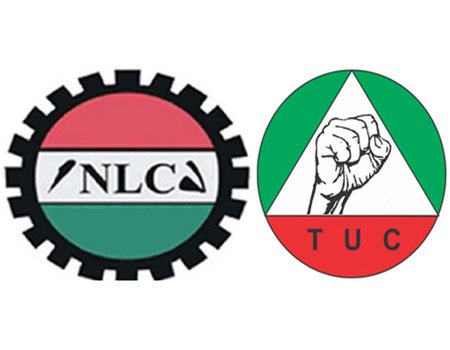The Zamfara State chapter of the Nigeria Labour Congress (NLC) and the Trade Union Congress (TUC) recently reached a pivotal agreement with the state government to implement the new national minimum wage by March 2025. This decision followed extensive negotiations and reflected the state’s unique challenges, which delayed the implementation initially mandated for December 1, 2024. While the agreement aims to address long-standing grievances, it raises questions about whether it meets the aspirations of the civil service workforce. Exploring the historical context of Zamfara’s Civil Service provides a deeper understanding of the significance of this agreement.
The creation of Zamfara State in 1996 marked the formal separation of its civil service from Sokoto State. However, early challenges under the military administration revolved around the complex process of asset-sharing and relocating civil servants to Gusau, the new state capital. Gusau, previously a local government headquarters, lacked adequate infrastructure to support the influx of civil servants, creating shortages in housing, office space, water supply, and roads. Despite these challenges, the military government developed a master plan for Gusau, initiated housing projects for civil servants, and provided temporary office accommodations. These measures laid the foundation for a sustainable administrative structure, albeit within the constraints of limited resources.
The return to democracy in 1999 marked a turning point for Zamfara’s Civil Service. The government established new ministries, departments, and agencies (MDAs) and expanded the workforce to manage them. Political and religious dynamics also led to the creation of specialised institutions, such as the Ministry for Religious Affairs and Hisbah Commission, to support the implementation of Sharia law. Between 1999 and 2007, civil servants’ welfare improved significantly. The state constructed housing units for workers across all the 14 local government areas and implemented the N5, 500 minimum wages. Civil servants received timely salaries, promotions, and leave grants, reflecting the administration’s commitment to workforce development and economic growth.
The period from 2007 to 2019 presented severe challenges for Zamfara’s civil service. While the government initially maintained welfare initiatives, subsequent administrations failed to meet workers’ demands for increased wages. Although promises were made to raise the minimum wage to N20,000, only lower-cadre employees earning below N18,000 saw adjustments. This partial implementation sparked industrial actions and widespread discontent. During this period, the N30,000 minimum wage introduced nationally remained unimplemented in Zamfara. Instead, repeated workforce verification exercises aimed to eliminate ghost workers but failed to address mounting issues like unpaid pensions and gratuities. Many local government employees earned as little as N7,000 monthly, far below the national standard, contributing to declining morale and workforce productivity.
- Zulum to roll out fresh 650 e-vehicles, presents N584.7bn 2025 budget
- Tax reform: S/East Senate caucus seeks wider consultations
Civil servants entered 2019 with renewed hopes for reforms and minimum wage implementation. However, only minor salary adjustments were made, and the anticipated transition to the N30, 000 minimum wages was not realised. The strain on the payroll system was exacerbated by an increase in senior special assistants, advisers, and permanent secretaries, further burdening the civil service and undermining its efficiency.
Following the 2023 elections, civil servants faced three months of unpaid salaries, alongside a 12-year backlog of gratuities and pensions. The incoming administration faced a formidable task: addressing these immediate and systemic issues while managing inherited bank loans and a dysfunctional civil service infrastructure. The new administration took swift action to clear salary arrears and begins tackling unpaid pensions and gratuities. Renovations of the state secretariat commenced, reflecting a commitment to improving the work environment. Additionally, political appointments were streamlined to ensure stability and reduce inefficiencies.
On June 12, 2024, the government announced the full implementation of the N30,000 minimum wages for all categories of workers. This marked a significant improvement, especially for employees who had previously earned as little as N7,000. However, this milestone was tempered by the impending adoption of the new national minimum wage of N70,000, highlighting Zamfara’s struggle to align with national labour expectations.
The administration introduced innovative measures to enhance civil service welfare, including a 13th-month bonus and a Ramadan welfare package for workers across all categories. Capacity-building programmes were also prioritised, with training sessions conducted for procurement staff, audit officers, and administrative leaders. For the first time, the appointment of permanent secretaries was based on a rigorous examination process, promoting meritocracy over political favouritism. Efforts to address workforce discrepancies included e-filing and verification exercises aimed at removing ghost workers and streamlining payroll systems. These measures, while delaying the new minimum wage implementation to March 2025, were deemed necessary to ensure accountability and fiscal stability.
While the agreement with the NLC/TUC reflects a pragmatic approach, its acceptance by civil servants has been mixed. Workers welcomed initiatives like the 13th-month bonus and welfare packages as interim relief. However, concerns remain about whether the government will honour special salary scales such as CONPCASS, when implementing the new minimum wage. Such scales are critical for retaining talent, combating brain drain, and boosting productivity.
The delayed timeline for minimum wage implementation also raises questions about the state’s ability to align with the 2024 National Minimum Wage Act, which mandates a three-year review cycle. The NLC/TUC must advocate for the next adjustment to occur by July 2027 to ensure compliance with national standards. Hence, administration’s reforms signify a shift toward a more accountable and efficient civil service. However, current administration had strived in addressing systemic issues, such as the backlog of pensions and the restructuring of MDAs. Streamlining administrative structures, coupled with regular capacity-building initiatives, further enhance service delivery and workforce morale.
The NLC/TUC agreement with the Zamfara State government represents a critical juncture for civil servants, who have endured decades of neglect and systemic inefficiencies. By addressing salary arrears, implementing welfare initiatives, and prioritising merit-based appointments, the new administration has taken significant steps toward restoring worker confidence and improving service delivery.
However, the delayed implementation of the N30,000 minimum wages underscores the challenges of aligning state policies with national labour standards. To ensure sustainable progress, the government must honour special salary scales, adhere to review timelines, and continue reforms that prioritise professionalism and accountability. Only through such comprehensive measures can Zamfara State truly usher in a new dawn for its workers.
Yahaya is a Lecturer, Department of Geography, Zamfara State College of Education, Maru

 Join Daily Trust WhatsApp Community For Quick Access To News and Happenings Around You.
Join Daily Trust WhatsApp Community For Quick Access To News and Happenings Around You.


